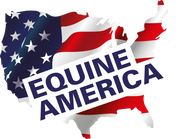Acorn Toxicity Autumn 2025
This year we have seen a bumper crop (also known as a mast year) of acorns following the warm, dry Spring and Summer. Now Autumn is here there are huge numbers of acorns on the ground.
Acorns contain tannins which are toxic to horses. When eaten they can cause a variety of symptoms and the early symptoms can be subtle.
Look out for:
- lethargy
- reduced appetite
- change in droppings (reduced frequency, too firm or too loose, or husks in the faeces)
- colic
- diarrhoea
- liver and kidney problems
If you have any concerns about your horse please contact your Vet for advice.
There is no specific antidote to acorn toxicity, and treatment from your Vet will depend on the symptoms but usually includes pain relief and fluids.
Although you may have grazed horses in a field with Oak trees for years without problems, do not be complacent, as some horses will develop a taste for them, regardless of their bitter taste.

 Keep checking the droppings, here you can see this horse has been eating acorns as there are husks in the droppings.
Keep checking the droppings, here you can see this horse has been eating acorns as there are husks in the droppings.
Tips for Preventing Acorn Toxicity:
- Remove the acorns from the pasture, this may mean physically raking or hoovering them up. In the right conditions using a roller to push them into the ground may be effective, but ensure they aren’t just crushed up and left on the surface!
- Remove the horse from the area, this might be a case of using electric fencing to temporarily restrict access to the area, or moving to a different field or stable.
- Supplementing forage in the field away from the Oak tree, may reduce the risk of them looking for extra food, but this should be planned carefully considering their weight and condition.
- Check your fields daily, particularly after a strong winds or stormy weather.
- Monitor their droppings, you can see the husks in the dropping if they have been ingesting them. For some horses acorns cause diarrhoea, for others it can cause an impaction, so monitoring the faeces for changes will aid early detection of a problem.
 Skip to content
Skip to content

